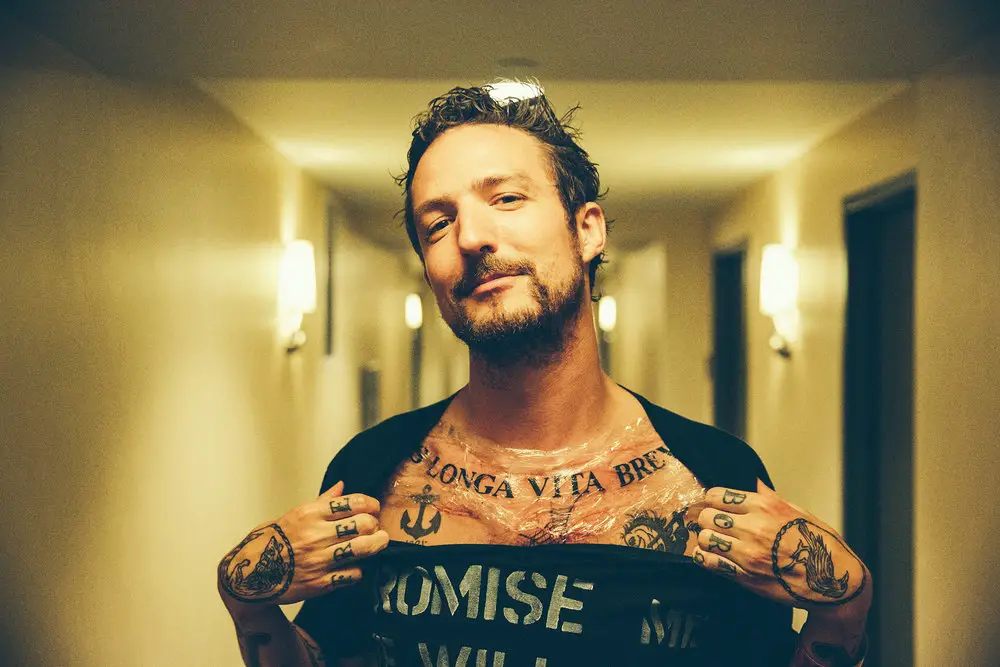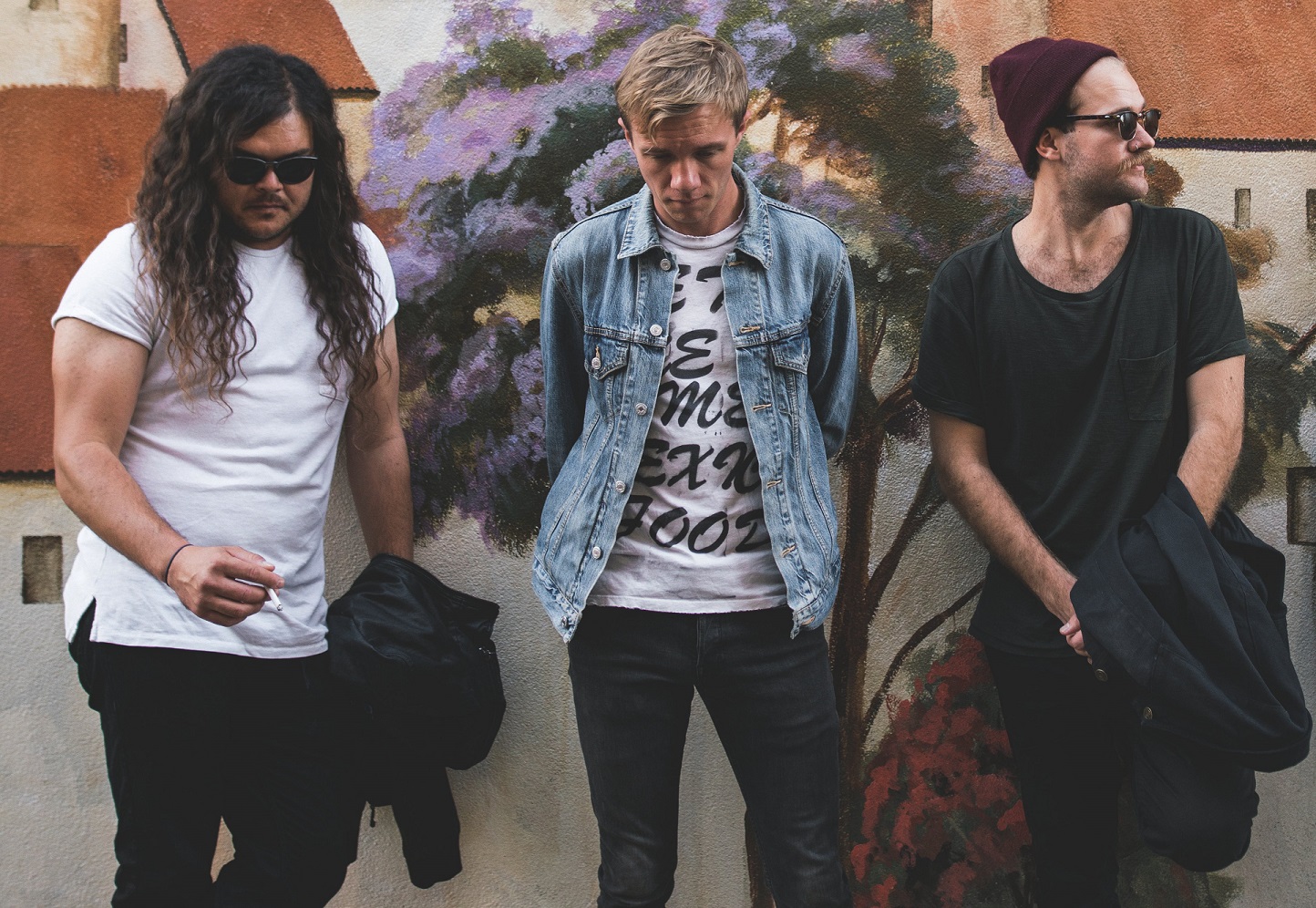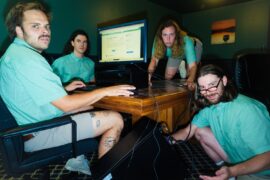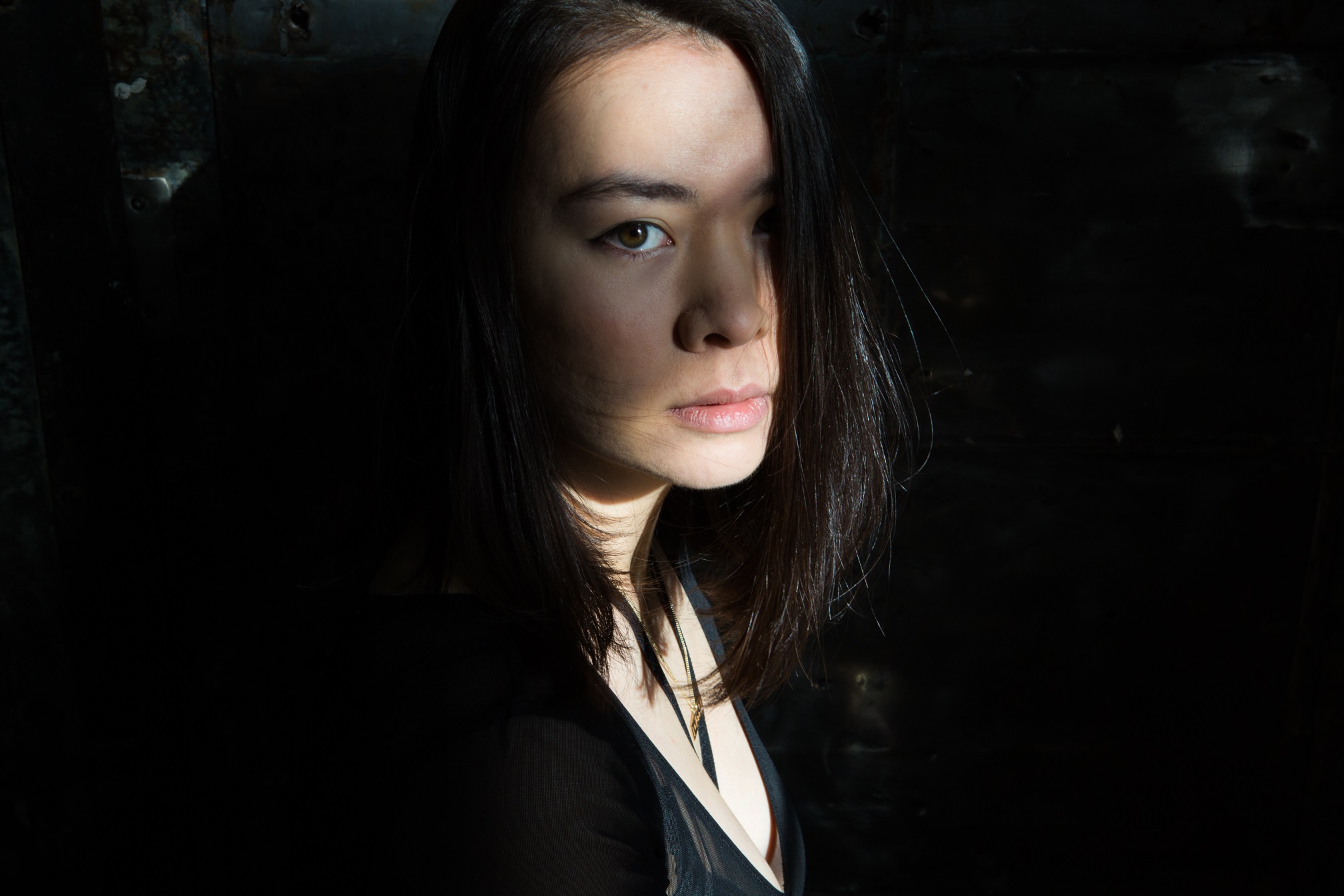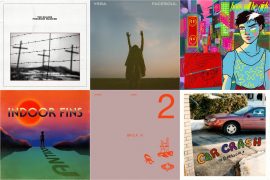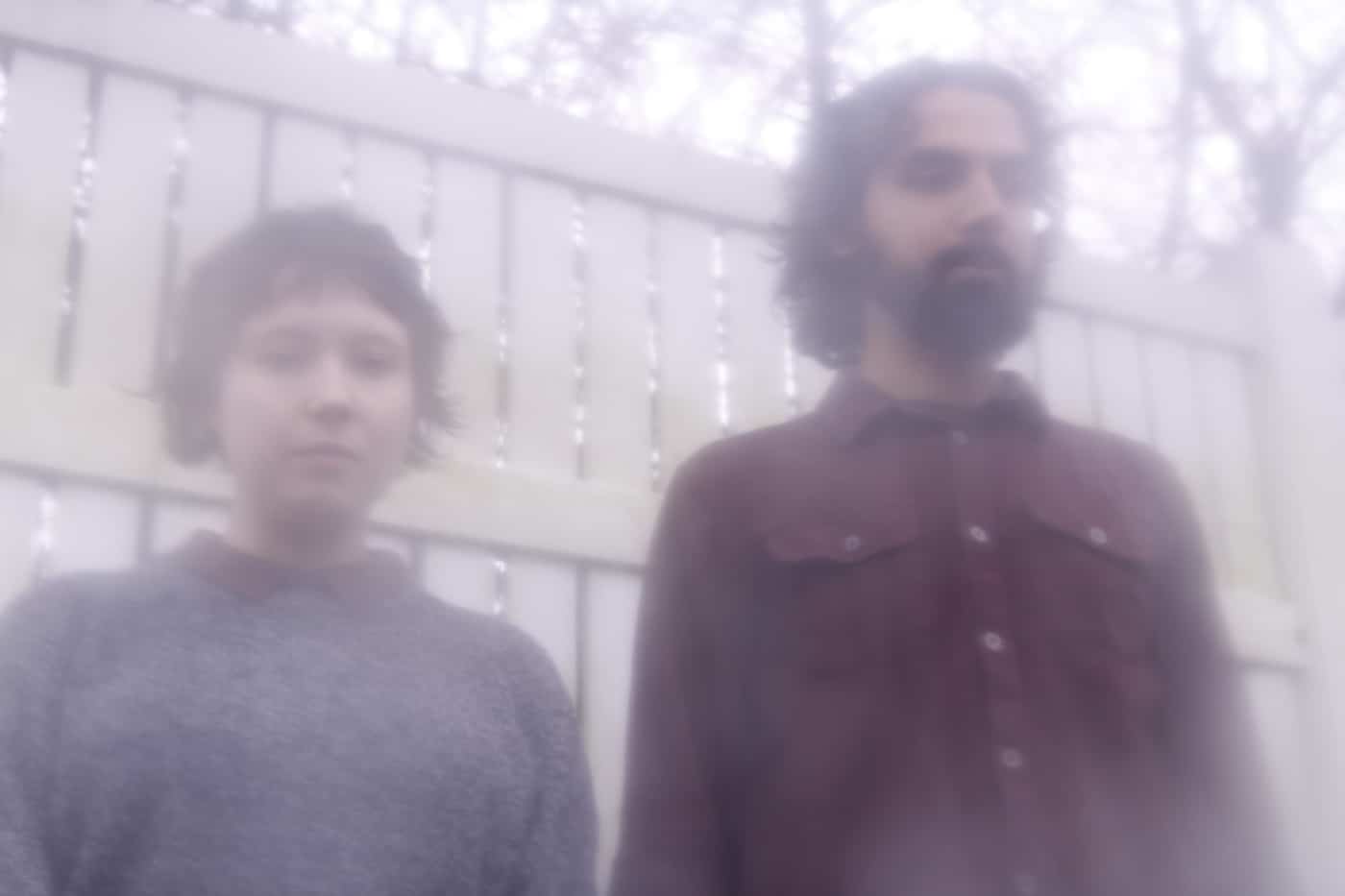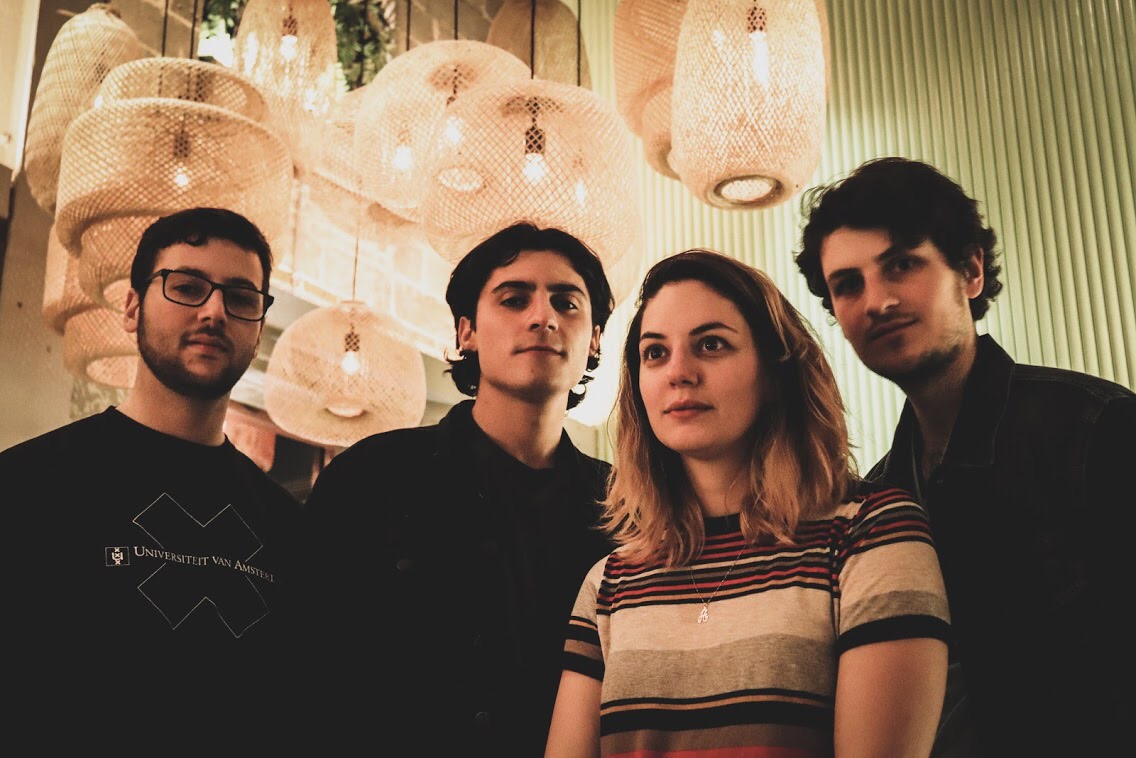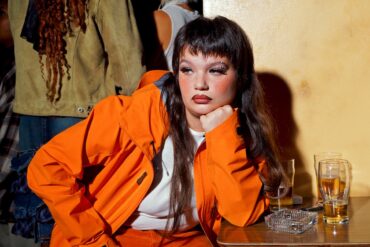Frank Turner discusses the music and politics behind his new album ‘Be More Kind’, post-punk, engaging with ideological foes, the benefits of getting older, and more.
interview by Jimmy Crowley and Mitch Mosk
— —
“Ifeel like I’ve been drawn back into writing about politics, hopefully as a sign of the fact that it’s sincerely meant,” Frank Turner says in the center of the liberal bubble that is Midtown Manhattan. The punk singer-songwriter has largely steered away from singing about politics for a large portion of his career, but has started addressing some of his concerns on his seventh solo album, Be More Kind (released May 4, 2018 via Interscope / Xtra Mile).
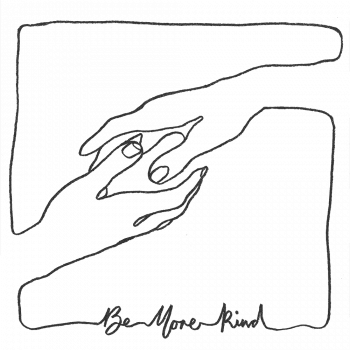
Frank Turner is completely at ease in making bold political statements, because he’s not afraid of receiving backlash from either conservatives or liberals. Be More Kind is an album that calls for conversation and understanding, rather than the vitriol spewed from both sides of the aisle. Even though Be More Kind marks a new musical chapter that sees the English singer leaning into post-punk and new wave, Turner still has the ethics of unabashed honesty that he built a career on.
Be More Kind incorporates elements of every moment of Frank Turner’s career; whether it’s the straightforward punk of “1933,” the country-tinged folk of “Going Nowhere,” or the arena pop leaning “Common Ground,” this is Turner’s most eclectic album. Frank Turner met up with Atwood Magazine before a run of acoustic shows in New York City, taking some time to discuss the music and politics behind Be More Kind, his single “Make America Great Again,” and the tenth anniversary of Love Ire & Song.
A CONVERSATION WITH FRANK TURNER
Atwood Magazine: You're doing a couple of acoustic shows here in New York this weekend. What do you get out of doing solo shows versus shows with The Sleeping Souls?
Frank Turner: Well, that’s a good question. There’s a different vibe to the performance really when I play with the band. It’s much more structured, should we say? Just on a basic level that you have to write a setlist, because you’ve got five people who need to know what the next song is. Whereas, I do sometimes write a setlist for solo shows, but quite often, I just wing it and just play whatever feels right, which is fun, and I tend to talk more and tell more stories and ramble on a bit more. It’s a bit more homely should we say when it’s just me. I don’t think one is any more or less valid than the other. It’s really fun to not have to choose between either, but I definitely feel a bit more like a troubadour when it’s just me. We’ve just done a long run of full band shows, and indeed, the band will be here on Monday. The doing stuff for the band and the band played on the record; that’s the meat of what I’m doing right now. But I like the idea that there’s a kind of a spine running through what I do, which is how it started, which is just me and a guitar, you know. That paradigm is kind of timeless. You know what I mean? There’s a silhouette of Joe Strummer, somewhere that I’m thinking of. It’s nice to be able to be able to just do that, grab a guitar and go, “Fuck it, here’s a show.”
Do you ever play guitar alone anymore?
Turner: All the time. All the time. And in fact, when I’m at home, I have guitars in every room of the house, including my pride and joy, which is Loudon Wainwright’s old guitar, which I picked up a couple years ago. It’s an incredible piece of wood. That’s the thing I enjoy more than anything else is just sitting around and playing.
One might think that you wouldn't do as much touring if you had a guitar like that in your prized-possession.
Turner: It doesn’t come on tour with me that guitar because that’d be a terrible idea. It’s funny, like I’m so proud to have the guitar. At the same time, I’m not a big fan of the whole kind of guitars in glass cases thing.
The cult.
Turner: Well, It’s a tool we end of the day, and I like the fact that I have nice guitars that play for a show, but at the same time, I do a show with a piece of shit guitar as well. The point is to communicate with a room full of people.
Who's in power? The guitarist or the guitar?
Turner: Yeah, communication is the important thing.
And what's it like doing these shows versus-the first time I actually ever saw you was when you opened for The Hold Steady this past December. So, what’s it like doing a show like this versus something like that?
Turner: Well, headline shows are easier, because everybody’s already on team when they show up and you know they are. Obviously, you play for longer, but you get a room full of people who know your songs, who sing along whatever else it is. That makes life easy. Actually, I’ve just done three dates on the Warped Tour, and that was an interesting experience, because it sort of reminded me of the thing that I don’t do as much of anymore. Like in the early days, I did a lot of tours where I was the opening act, with an acoustic guitar going out in front of a room full of people who had no idea who I was. Who didn’t give a fuck, and you’ve got half an hour to turn it around and you don’t have the added weight of volume or a drum kit or guitars blaring; it’s just you and a guitar and you’ve just got to project your personality and your songs at people. I used to do a lot of that, and I do less these days, but it was kind of a fun challenge to do that again, actually. It was weird. I did three shows, and in a way, it was almost a shame, because by the time I got to the third show, I really felt like I hit my stride with kind of like winning over the Warped Tour crowd and then it was over, but that’s oft and away.
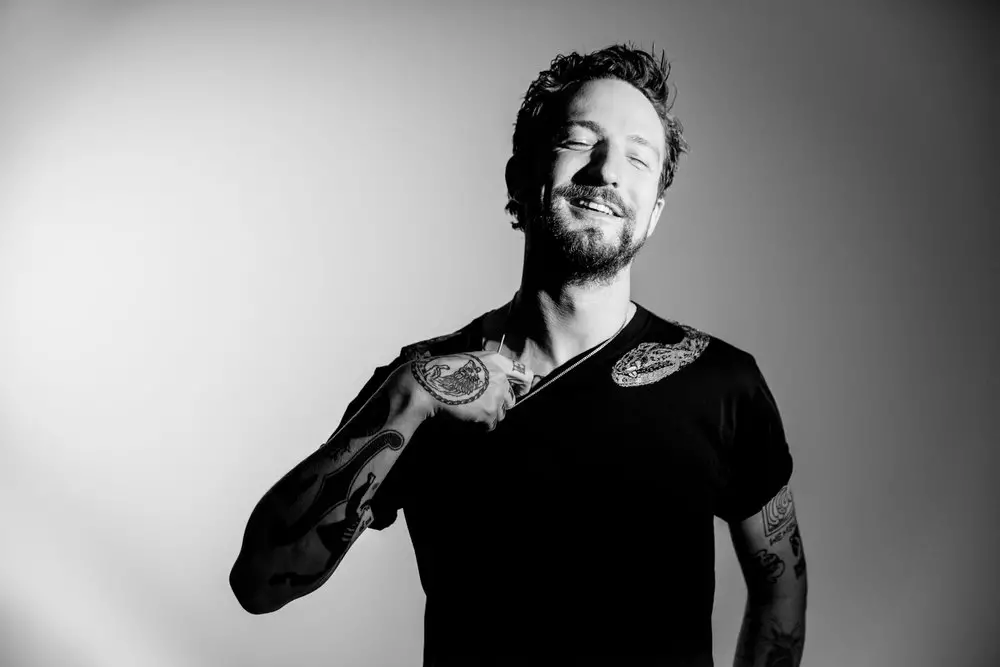
What were some of the artists that inspired you to lean in a more synth-heavy, new wave-y direction on the new album?
Turner: That’s good. I thought that was going to be a question I’ve answered a million times, and it wasn’t. That’s great, thank you; that’s a good question. I mean, there were two main influences in that. One of which was, I read a book by Simon Reynolds called Rip It up and Start It Again, which is a history of post-punk, and my knowledge – my musicology, if you like – because I’ve always slightly gone ‘77 punk, and then kind of early 80’s American – hardcore and then through the kind of Michael Azerrad thing and through Dinosaur JR. and R.E.M. and then eventually you hit Nirvana and the rest of it. Post-punk, which was more of a kind of British phenomenon – there’s been a gap in my music on it.
So I read this book, and obviously if you’re reading a book about music, then I’m immediately downloading and listening to the songs getting mentioned. And that really blew my horizons wide open. One of the things I particularly liked about it is that the early ’80s were a moment in time when kind of electronics, where the real forefront of music-making and, when you have bands like Human League for example, using sequences and synthesizers, it was really cutting edge doing that, but also from a modern point of view, quite simplistic in a way. In a way that I quite liked, you know what I mean? It’s not kind of like, you know, we’ve got triggered synths and 17 different layers. There’s like, “We have a synthesizer, we’re going to use it on a song.” And that was the ballpark.
One of the other major influences on it for me was, I’m touring with a band called Arkells who are a band from Canada. They are giganta-enorma-mega huge in Canada. So we did a tour where we did the tour swap, so when we were in Canada, we open for them and when they were in the States they opened for us. But, they are a phenomenal band. They’re good friends. Max [Kerman], the singer and I – he’s one of the only people I’ve ever met who kind of studies the studies rock ‘n’ roll in quite the same way that I do. I’m really quite sort of academic in the way I think about it and so is he. We definitely recognize each other as kindred spirits on that level, but particularly the album they were touring when we were touring with them, Morning Report, it’s a thing, which is kind of rare in my corner of the music world these days, which is just intelligent and unashamed pop music. They’re a pop band, and I guess, The Killers would be the main example that, but I still have one foot in a scene in which the word pop is still kind of a dirty word. Do you know what I mean? And there was something really kind of refreshing and liberating to me to see a band who are just being a pop band, and yet were also intelligent, integral adults. It was kinda like, “Oh shit, I could do that too.” That was a long answer to a short question.
Your music has been relatively apolitical from about Poetry of the Deed to Positive Songs. Why did you feel that it was important for you to create a political album about finding middle ground?
Turner: I would phrase it the other way around, with the risk of sounding slightly kind of hippy-dippy about this: The key in life is to try and arrange your affairs and your working message in such a way that you are open to inspiration, and inspiration arrives in the manner of its own choosing. I was writing songs about something completely other, and then we were on tour over here in 2016 in the summer. It’s not just a record about America emphatically… Although in all honesty, it’s easier for me to make direct comments about American politics than English politics, because I have the benefit of the arm’s length distance and the outsider status. It’s more difficult for me to talk about Brexit in a songwriting kind of way, than it is for me to talk about Trump – and that’s entirely because I’m English and not American, but nevertheless I don’t want it to be just be record about America.
But being over here and [with] all that kind of thing going on, just inspiration struck – ideas started arriving. I wanted to talk about what was going on. Also, I thought it was an interesting idea to try and write a political album centered on the premise that I don’t really know what’s going on. To write a Rage Against the Machine song or a Rise Against song (or whatever), and all these bands that I know and love and respect, you have to be pretty sure that you’re right. Do you know what I mean? Doubt doesn’t really come into a Rage Against the Machine song, whereas partly as a function of getting older, I’m 36, I’m past the hump of my thirties now. Fuck. Also as a function of how the world is changing, the overwhelming emotion I have in that politics is uncertainty. I have long since given up trying to make predictions about what’s going to happen, and there’s no uncertainty about my kind of moral precepts that underpin my politics, but just I don’t know what the fuck is going on?! It tickled me in a way, the idea of trying to write kind of like a rousing album centered – or incentive album centered on the idea of being confused. Hopefully, it worked out.
I thought it was an interesting idea to try and write a political album centered on the premise that I don’t really know what’s going on.
It definitely worked out. So that mean the same time the tradition of musicians’ celebrity-ship is as old as the backlash to that celebrity and influence. David Bowie’s “Space Oddity” had the lyric, “The papers want to know who's shirt you wear.” That was always a favorite of mine saying, “Okay, everybody wants to know what team you're rooting for and why does that matter?” When we last met, we talked about music being the end in and of itself. Not a means to. And you also talked about musicians and your belief that let me bring up my quote-
Turner: You’re gonna fucking read shit back to me and cut me down [laughs].
“My responsibility is to be the best musician that I can and to do the best shows that I can, that I am charging people money to get into, and to make the best records that I can. If I choose to have social responsibilities beyond that – and in some ways I do, and in some ways I don’t – then that’s my prerogative, but any one artist telling any other artists what they should or shouldn’t be doing, outside of trying to make the best music they can, is a pretty naff sight, I think.”
Turner: I stand by that entirely. I mean, there’s a question I’ve been asked a couple of times on this album cycle: “Do you think musicians have a responsibility to comment on what’s happening right now?” The answer to which is no, absolutely not. Musicians have responsibility to do whatever the fuck it is they want to do with their art. The flip side of that is I also have the right to do whatever the fuck it is I want in my art.
Part of the reason I’ve shied away from politics for a few records is that I got burned quite publicly about politics, and I will to the extent that that was my fault, which is some, I will hold up my hands and take my word for it. Also, the other thing is just in the world of Obama and Dave Cameron, and Ed Miliband and all the rest of it – I didn’t feel like there was much going on that was burning through my consciousness in formulating itself into song and comment and art and poetry and whatever else. And without naming any names, there are writers I know who were so relentlessly political at the time that it was a bit kind of like it was very difficult for them to change gear when Donald Trump got elected, because they were already absolutely furious about everything, which almost suggests that, well then what does it matter that Donald Trump’s been elected-or indeed Brexit and all the rest of it? And the answer is a lot, in my opinion.
I don’t want to criticize anybody on that, because every artist does what they think is right. But for me, I feel like I’ve been drawn back into writing about politics, hopefully as a sign of the fact that it’s sincerely meant. There was a level in which I was really enjoying not talking about politics. I was really enjoying not having to have that be part of my public thing. In choosing to dive back into it, there was an extent to which I took a deep breath and was like, “fucking hell, let’s do this.”
The flip side of that is just that, another reason I felt like I can write about politics a bit more now is that I don’t give a fuck anymore. Well, that’s a bit bold way of saying that. I give considerably less of a fuck than I used to. I’m fucking like, in terms of the slings and arrows that social media throws at you, I’m at the top end of the demographic of people who do what I do for a living in my scene. It’s just like some fucking 20-year-old kid wants to tell me that I’m wrong. It’s like, “I’ve been touring since the year that you were born – like, fuck off.” Do you know what I mean? It’s one of the payoffs of getting old. Other than everything’s starting to hurt and not understanding new music and all the rest of it, is just that I’m more self-confident, and I don’t really give a fuck about – I give less of a fuck about what people –
- You say what you want to say, when you want to say it.
Turner: Yeah. Part of that is I’ve learned to temper what I say with more consideration, or at least, I hope I have. I will say what I’ve got to say, and whatever.
Without fear of backlash.
Turner: Yeah. The entire hard left wanted to fucking crucify me in about 2012. And then, we put out the song “Sand in the Gears” a year ago, and I got an absolute torrent of hatred from people on the right, which made me feel like I was doing all right. Actually. Do you know what I mean? Because I do consider myself a centrist politically, and it was just kinda like, “Cool, we’re balanced out here. That’s kinda nice.” Everyone hates me!
Another reason I felt like I can write about politics a bit more now is that I don’t give a fuck anymore.
Hopefully, everybody loves as well. I’m reminded, when Donald Trump got elected, my boss came in and said, “Yeah, this sucks. It's going to be a tough time for everybody, and hopefully we make it out. I've lived through Reagan, and I promise you will live through this guy as well,” but he also said, “we're going to get a shit ton of really good music out of it.”
Turner: Yeah. That is a statement that I think that you have to be quite careful about.
I’d take the music back in a heartbeat.
Turner: Exactly. I’ve seen a few people who are extremely white and comfortable saying, “Oh, isn’t it great, we’re going to have some more punk bands.” And it’s kind of like “Cool, real people are suffering right now. Fuck your music taste.”
This is shifting the conversation a little bit: My actual politics are not what a lot of people think I am. To the extent, if you put a gun to my head, I’d probably self-identify as libertarian. I’m not a Bernie Sanders democrat, for example, which most everybody I know the music industry is, and that’s fine. I think that’s an intellectually respectable position. I think that the thing that’s so vital is to include the people we disagree with in our conversations, and I don’t want my rhetoric and presentation to constantly be a conversation between people who agree with each other, sort of patting each other on the back for having the correct opinions. I think that’s dog shit, and I also think it’s dangerous. Do you know what I mean? I think the reaction that those of us who don’t like Donald Trump must have is to try and talk to the people who voted for him and ask why and understand what their concerns are and not necessarily endorse those concerns. But fuck man, if you’re only reaction is to tell them that they’re useless pricks and idiots and all the rest of it, they will vote for him again.
Also, there is a valid, entirely valid and important point, and this also applies to Brexit, where if you have a section of population has serious concerns, which the mainstream of politics has decided as beyond the pale, and then somebody addresses those concerns, then they’re going to do well. And you know, certainly talking about British politics, I’m instinctively very pro-immigration and open borders.
But, being somebody who is well off and white and middle class and all the rest of it, it doesn’t really affect me particularly. And I think that in the UK you have a lot of people who live at the bottom end of the economic scale in working class communities for whom immigration is more real concern, and they have been told for 20 years that to even say that out loud makes them a racist and, finally sooner or later, racists come along and engage with their opinions. I do think that the kind of liberal politics has something to answer for that.
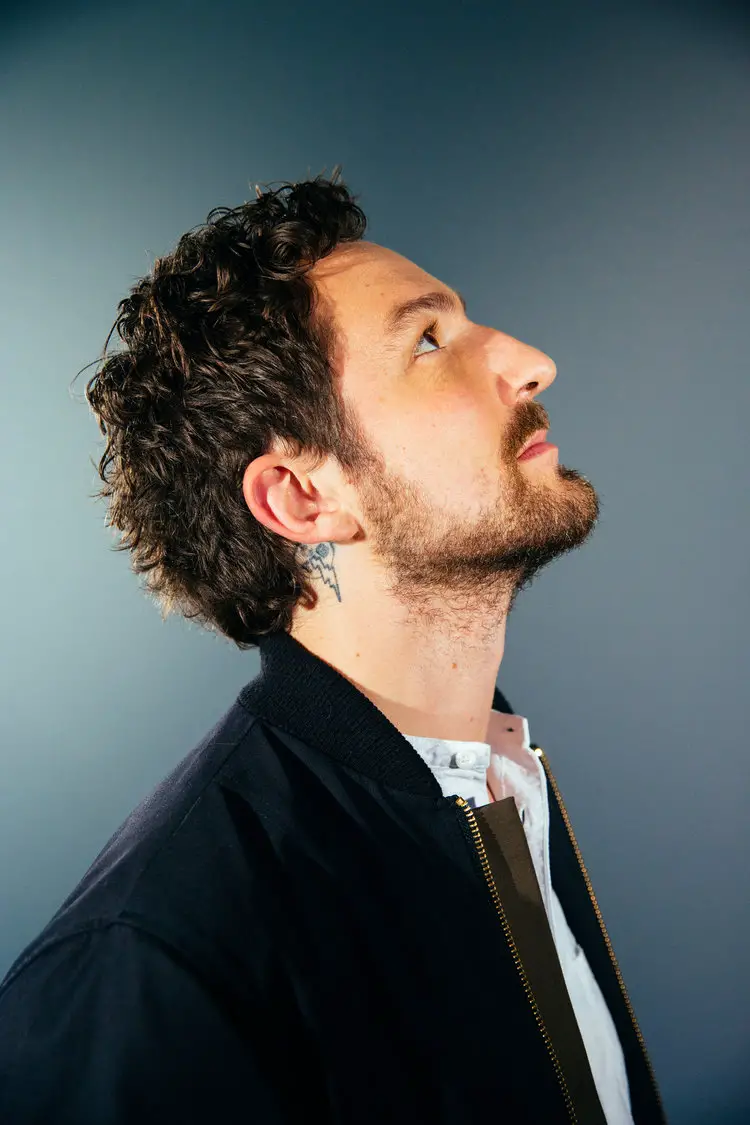
I can’t disagree with you there. To bring it back to music, kind of going with that, the theme: the song “Make America Great Again-“
Turner: Yes! Haha!
The first time I heard it was actually long before I think the album was even announced was at that Hold Steady show.
Turner: That was the first time I played it.
And it was kind of shocking and jarring and I imagine it was to just see “Frank Turner-Make America Great Again.” Was that sort of the aim of the song then?
Turner: Fuck, yeah. It’s old-fashioned punk rock provocation. Right? Do you know what I mean?
It reminded me a lot of standup comedy, in the sense that you make a statement and then... release.
Turner: Yeah! The Sex Pistols released a song called “God Save the Queen.” Do you know what I mean? It’s the same principle. Exactly. There’s a long old tradition of people repossessing a political statements. I mean, to a degree, the word “punk” was an insult. The word, “Yankee” is an insult for that matter. The song “Yankee Doodle” was an insult song written by a British person taking the piss out of Americans. It was a British song taking the piss out of the American Revolutionary soldiers. The American Revolutionaries just went, “Fuck it. We’ll make it our song.” This is not an original idea of mine to do this.
But, you're the one who did it.
Turner: Yeah, sure. I was to a degree surprised that nobody beat me to it. There was a level in which I was like, “Get the fucking album out. Get the fucking album out.” It was so obvious to do that and it was just like someone else’s going to beat me to it, and then, I’m going to look like a dickhead. And, actually on the flip side, there were people at the record label who were kind of like, “Well, the problem with this song is, it’s probably going to be dated by the time the record comes out.” I don’t want to say, “I’m pleased to say,” but it so happens that doesn’t seem to be the case. I kind of want to push the song a little harder over here, because it’s mainly just landed with people who already know who I am, who tend to be on my side of the aisle. And I’d like to piss some more people off with it. I’d like to end up on a chat show next to somebody wearing that fucking hat. Thank you very much. And I’d like to argue my case against them. It hasn’t happened yet, but I’m up for it. The funniest thing about that song is when it first came out, because obviously what you drop a song the first people to hear it are the people who are already engaged with you. Anyway, the thing that generated the most anger when it first came out was the synthesizers rather than the politics, which I thought was fucking hilarious. People kind of like, “I can’t believe this fucking song.” And it was like, “Why are you a Trump supporter?” It’s like, “No, I just hate synthesizers,” like “Fuck, okay, grow up.” It’s fun. It’s out there. I’ve been playing, I played it at the Warped Tour. That was kind of fun. At Warped Tour Indiana, there was a definitely a Trump contingent who were not stoked. So I can’t write a song like that and not play it at shows in America. That would be cowardess.
What's been the reaction to that in Europe?
Turner: We played the first tour for the record that we did after it was out properly was a UK tour and we were playing that song every night and it was kind of interesting because, to be honest, I’m not sure how much I’m going to bother playing that song outside of the States going forward because everyone’s reaction was kind of like, “yeah, cool. Why are you telling us?“ Whereas when we got to America, it felt much more visceral playing that song as part of the set. It was obviously directed at a certain audience.
Love, Ire & Song turned 10 this year. What's it been like reflecting on that album?
Turner: Wonderful is the short answer to that. When I wrote that record and recorded that record, my expectations, even my ambitions, were aimed well below where I’ve ended up in life. I was hoping that maybe we could do two UK tours on the back of that record. That would have been a real success. The opening night of that tour, we played to 150 people in Leeds and that felt like I’d achieved something, you know? Even just to be talking about it in New York, a place that would have been ambitious as a holiday destination for me 10 years ago is a great privilege. In going back and revisiting it, it’s lovely to be able to see that it’s stood the test of time. There was no part of it that I kind of go, “Ooh, adolescent” about. I can stand by it. The other thing that’s nice is that we did a show in London and we did a show in Boston. We’ll talk about it. That’s fine, but also, we’re here talking about Be More Kind. It’s 10 years on it and I’m still, in my opinion, forging ahead, both creatively and commercially and that’s nice as well. It’s not kind of like, “Oh cool, let’s go play the only album anyone cares about.” It’s been a joy.
I like that you think about that - completely challenging yourself to stay in your prime, or rather never hit your prime.
Turner: Yeah, it’s funny. I couldn’t have written Love Ire & Song – I can’t rewrite Love Ire & Song now for a number of extremely obvious semantic reasons, but I couldn’t have written Be More Kind 10 years ago, right? Those kind of inter-career comparisons are a complete waste of time from my point of view. It’s just nice to be able to go, “I did a thing, I did a thing when I was 25. It’s still pretty good, you know.” That’s a nice thing to be able to say.
Frank, I remember that Positive Songs was written and developed on the road and recorded on the road. How were the Be More Kind sessions different?
Turner: Radically. It was written during touring but it was radically different by design in the sense that I put a moratorium on me and the band working on any arrangement ideas before we went to the studio and that was just like we are going to get to the studio and see what happens, which is what we did so the complete opposite. With Positive Songs, when we got to the studio, it was just like, “These songs are done, press record and put the mics in the right place,” which is what I wanted to be. And that was fine. But so it was the complete opposite. If you arrange a song in a room with five people, you end up with a song that has five parts. Whereas this time around it was like, “What does this song need?” Some songs have like twenty parts, and some songs have two.
Hence the synths.
Turner: Yeah, right. But also, the first track “Going Nowhere” just has drums and guitar. I’m not even playing on the first half of that song. It’s kind of nice rather than, whereas like how the fuck it is we’re ever going to play “Common Ground” live is still a point of contention because it has like eight synth parts and two piano parts and three guitar parts and two drum kits. We don’t have that many people up here.
You have to talk to Arkells and figure out how they do it.
Turner: Well we’ll see how that goes.
— —
:: stream/purchase Be More Kind here ::
— — — —
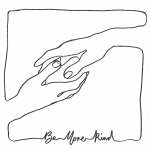
Connect to Frank Turner on
Facebook, Twitter, Instagram
Discover new music on Atwood Magazine
? © Ben Morse Photography
:: Frank Turner Live ::
Aug. 3 – Morrison, CO – Red Rock Amphitheatre
Sept. 6 – Portland, OR – Crystal Ballroom
Sept. 7 – Seattle, WA – Moore Theatre
Sept. 8 – Vancouver, BC – Vogue
Sept. 9 – Victoria, BC – Alix Goolden Hall
Sept. 11 – Edmonton, AB – Winspear Centre
Sept. 12 – Calgary, AB – MacEwan Hall
Sept. 14 – Saskatoon, SK – O’Brians
Sept. 15 – Winnipeg, MB – Burton Cummings
Sept. 18 – London, ON – London Music Hall
Sept. 19 – Toronto, ON – Phoenix
Sept. 22 – Montreal, QC – Corona Theater
Sept. 24 – Ottawa, ON – Bronson Centre
Sept. 26 – Burlington, VT – Higher Ground
Sept. 29 – Asbury Park, NJ – Hear Me Sea Festival
Sept. 30 – Ithaca, NY – State Theatre
tix & more info @ frank-turner.com
:: Be More Kind ::

